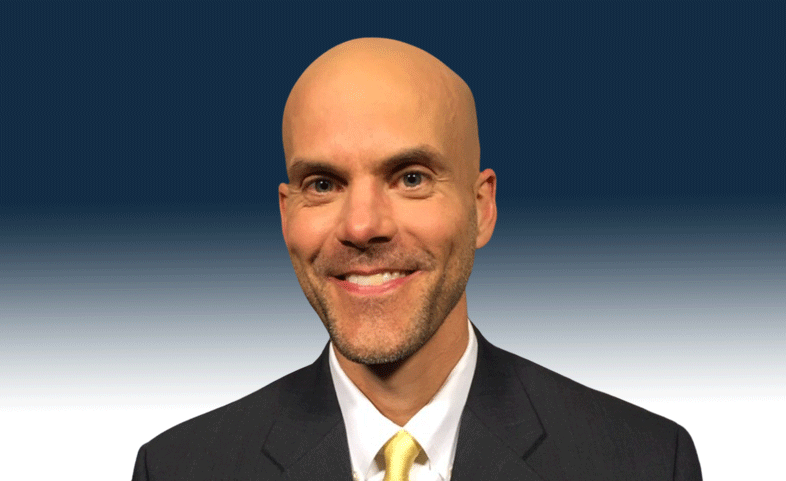
Five Questions For … The Chronicle of Higher Education’s Brad Wolverton on Storytelling, Access, and Objectivity
Brad Wolverton spoke with EWA about overcoming roadblocks to access, maintaining objectivity, and staying out of the way of the narrative.
Brad Wolverton, a senior writer at the Chronicle of Higher Education, spent three months working on“The Education of Dasmine Cathey,” the story of a semi-literate University of Memphis football player struggling to finish college. He spoke with EWA about overcoming roadblocks to access, maintaining objectivity, and staying out of the way of the narrative.
1. How did you find Dasmine Cathey?
I was hearing from tutors and people in academic services about the strains on their staff from students with remedial needs. College athletes represented a disproportionate number of those students. I’ve known Joe Luckey (Memphis’ director of athletic services) for many years, and I figured he could help shed light on this national issue. It turned out he also offered up a few personal examples. Based on Joe’s initial description, I knew Dasmine had reading issues, but I didn’t realize how bad his situation was.
You don’t land subjects this willing and this interesting often in your career. I was very fortunate to get to spend time shedding light on the life this guy leads. And it’s a complex life. He’s a sweet guy with a challenged background. He opened up to me, and I owe him a debt of gratitude for that.
These were the 5 questions for Brad Wolverton:
- How did you find Dasmine Cathey?
- Did you set down any ground rules in terms of what you would – or would not – report about his personal life or his family?
- Did you ever find yourself wanting to step in and help him?
- How difficult was it to get the University of Memphis to cooperate?
- What lessons can you share with education reporters who might be considering tackling a similarly in-depth profile?
2. Did you set down any ground rules in terms of what you would – or would not – report about his personal life or his family?
I was upfront with Dasmine. We talked about that I wanted to show people the arc of his career and how he had progressed as a student. It turned out he had made significant progress. But if you look at his school work, it’s clear he’s not at a college level in his skills and writing.
I explained to him in detail that I was interested in using his papers to illustrate the challenges he came to college with and how far he had come. I was specific to the point of explaining that there would be PDFs online that people could click on and see his actual writing.
There were several examples of his papers that were too personal. I read through them and decided I wouldn’t use them because it would expose him and make him even more vulnerable.
3. Did you ever find yourself wanting to step in and help him?
There was a moment when I went along with him to buy some new track shoes to try out for the NFL. He took his aunt’s ATM card and withdrew $60 or $80. We went to the sporting goods store, and he picked out a pair of shoes and a bag of socks. He got to the cash register and he had enough money, but he decided to take the socks off. It was sort of painful for me to watch. He probably didn’t already have good enough socks. I felt for him, but I couldn’t do anything.
The people around him often felt that way. They couldn’t give him everything he needed, they couldn’t write better papers for him so that he would pass his classes. They could lead the kid to water but couldn’t make him take that extra step.
4. How difficult was it to get the University of Memphis to cooperate?
At the beginning they were very cooperative in opening the door for me. Once they realized the severity of the situation, they were much more guarded. They didn’t want any release of Dasmine’s transcripts or his papers. They didn’t want to expose the faculty and the university to any sort of perception that getting a degree at Memphis was too easy or that they had passed Dasmine through these classes even though he couldn’t read.
And yet the university officials were extremely open in lots of ways. They talked about the concerns within their program. I pushed them to give me data even if it had to be couched in percentages so that it didn’t expose individual kids in the program. They gave much of what I asked for, but it was more challenging than I would have liked.
5. What lessons can you share with education reporters who might be considering tackling a similarly in-depth profile?
FERPA stands in the way for a lot of access to students. I’d like to think this story could be a reminder that if you’re thorough and honest with people, you can get access to a lot more than you realize. The story also lived at a low level of abstraction – I was able to give specific examples of Dasmine’s day to day reality. The concrete details helped the story to come to life.
I spoke with Dasmine, and he told me “I wouldn’t change a word of the story.” He’s responsible for some of his problems, but he’s also been a victim of the system. To him, this is his moment to come clean on a big secret he was carrying for a long time. He described it as having a big weight off his shoulders.
This post originally appeared on EWA’s now-defunct online community, EdMedia Commons. Old content from EMC will appear in the Ed Beat archives.